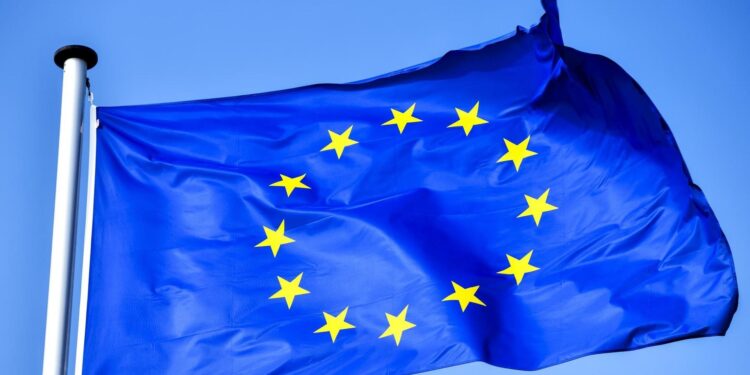The European Union has adopted a firm rhetorical stance toward Georgia, emphasizing the need for reforms and adherence to democratic principles, yet its actions reveal a more cautious and measured approach. While Brussels publicly condemns setbacks in governance and rule of law, its engagement with Tbilisi continues to balance pressure with continued support, reflecting the complex geopolitical and strategic considerations at play. This article explores the apparent disconnect between the EU’s tough talk and its softer policies in dealing with Georgia, shedding light on the implications for both the country’s democratic development and regional stability.
EU Condemns Georgia’s Political Backslide While Offering Limited Concrete Pressure
The European Union has publicly voiced its deep concerns over recent developments in Georgia’s political landscape, highlighting a perceived erosion of democratic norms and escalating political tensions. Despite stern rhetoric and unequivocal calls for restoring constructive dialogue among Georgian political actors, EU officials have refrained from implementing robust punitive measures. This cautious approach underscores a preference for diplomatic engagement over coercive pressure, aiming to retain influence without risking further destabilization in a strategically important Eastern Partnership country.
Critics argue that the EU’s response lacks substantive impact and risks emboldening factions resistant to reform. The bloc’s current toolkit remains limited, with incentives such as financial aid and diplomatic support continuing alongside verbal condemnations. The balance of pressure and partnership is laid out in the table below, illustrating the key elements of the EU’s current stance:
| EU Approach | Key Components | Potential Impact |
|---|---|---|
| Diplomatic Engagement | High-level talks, mediation efforts | Facilitates dialogue but slow progress |
| Financial Aid | Development funds, budget support | Supports stability but limited leverage |
| Verbal Warnings | Condemnations, public statements | Raises awareness without enforcement |
| Targeted Sanctions | Currently minimal or absent | Potential future tool, not yet utilized |
- Political Dialogue: Encouraged through EU facilitation without preconditions
- Monitoring Mechanisms: Enhanced observation by EU institutions
- Conditional Support: Aid linked to measurable democratic reforms
EU’s Diplomatic Balancing Act Undermines Credibility in Addressing Georgian Reforms
The European Union’s approach toward Georgia reveals an increasing tension between rhetoric and action, raising questions about its consistency and influence. While EU officials publicly emphasize the necessity for accelerated reforms and judicial independence, the implementation of these demands remains riddled with caution. This cautious diplomacy, designed to maintain strategic partnerships and regional stability, often leads to a dilution of reform pressures, undermining the EU’s stated objectives. Georgian authorities appear to exploit this diplomatic leniency, slowing reform processes without facing significant consequences or credible deadlines.
A closer look at the EU’s balancing act underscores several critical shortcomings:
- Lack of uniform enforcement: Inconsistent adherence to agreed-upon benchmarks leaves reforms in limbo.
- Overemphasis on dialogue over accountability: Prolonged negotiations appear more performative than transformative.
- Strategic compromises: Prioritizing geopolitical stability often takes precedence over democratic progress.
| EU Commitment | Current Status | Impact on Reform |
|---|---|---|
| Judicial Independence | Partial adoption, delayed implementation | Limited progress, ongoing political influence |
| Anti-Corruption Measures | Minimal enforcement, occasional high-profile cases | Public skepticism, weak institutional trust |
| Media Freedom Protections | Laws passed but enforcement uneven | Persistent concerns over impartiality |
Recommendations for Strengthening EU Engagement and Ensuring Accountability in Tbilisi
To bolster the EU’s credibility in Georgia, a recalibrated strategy is essential-one that balances firm diplomatic pressure with transparent, measurable commitments. This involves instituting clear benchmarks for democratic reforms and rule of law improvements, tied directly to tangible EU incentives. Without a credible enforcement mechanism, statements risk being dismissed as mere rhetoric by Georgian political elites. Moreover, sustained engagement requires empowering civil society and independent media with targeted funding and protection measures, ensuring these pillars of democracy can resist political interference and corruption.
Key areas for action include:
- Establishing a transparent monitoring framework with regular, publicly available progress reports on democracy and governance criteria.
- Linking EU financial aid explicitly to compliance with governance reforms to enhance accountability.
- Supporting judicial independence through specialized training programs and international expert collaborations.
- Enhancing EU diplomatic presence outside the capital to engage more closely with regional stakeholders and marginalized communities.
| Priority Area | Recommended EU Action | Expected Outcome |
|---|---|---|
| Democratic Reforms | Introduce binding reform benchmarks with aid conditionality | Increased government accountability & reforms |
| Media Freedom | Expand financial support to independent outlets | Stronger, more diverse media landscape |
| Judicial Independence | Deploy EU judicial experts for training and oversight | More impartial and effective judiciary |
Future Outlook
As the European Union continues to assert a firm stance on Georgia’s political and economic challenges, critics argue that its actions fall short of matching its rhetoric. The disparity between Brussels’ tough talk and measured engagement raises questions about the EU’s long-term commitment to supporting democratic reforms in Georgia. Moving forward, sustained pressure paired with concrete support will be essential if the EU hopes to influence meaningful change and uphold its credibility in the region.
















